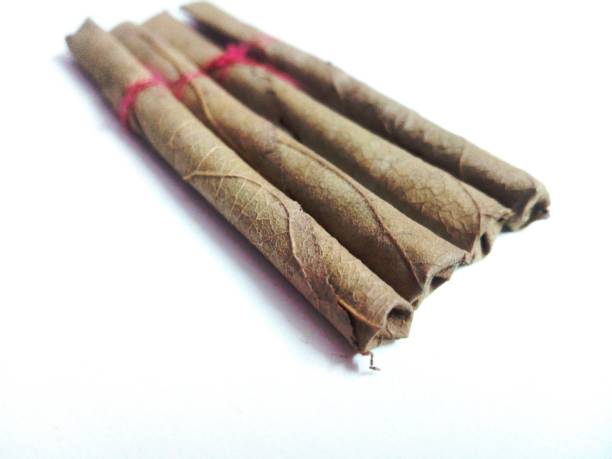A recent study conducted by the School of Public Health at the All India Institute of Medical Sciences (AIIMS) in collaboration with the International Union Against Tuberculosis and Lung Disease has recommended the implementation of enhanced tax and strengthened regulatory measures against the beedi industry. The study’s findings, released on Friday, indicate that such measures could lead to reduced consumption and potentially prevent associated mortalities. Titled “Navigating the Implications of Beedi Regulation and Taxation,” the report emphasizes the need to address the health, environmental, and economic burdens caused by beedi consumption. One of the key recommendations is to revoke the industry’s status as a “cottage industry” due to the detrimental effects it poses.
Study Recommends Enhanced Tax and Regulatory Measures to Reduce Beedi Consumption and Avert Health Hazards
The study outlines three projections for achieving the desired outcomes: increasing product regulations, raising taxes, or implementing a combination of both. The report suggests that taxation can be a powerful tool, capable of generating manifold increases in revenue and significantly reducing disease and disability resulting from beedi consumption. Dr. Pankaj Bhardwaj, Academic Head of the School of Public Health at AIIMS Jodhpur, estimates that by raising beedi tax to match that of cigarettes, the government could generate more than ten times the current revenue while saving nearly 50 lakh life-years. The report highlights the existing disparities in taxation between different tobacco products. Currently, beedi tax stands at a low 22 percent, while cigarettes face a 52 percent tax and smokeless tobacco is taxed at 64 percent. The World Health Organization (WHO) recommends a 75 percent tax on all tobacco products. To ensure comprehensive regulation, the study also stresses the importance of banning the sale of loose beedi sticks and enforcing licensing norms for tobacco vendors, thereby curbing black market activities and illegal circulation.
Dr. Kuldeep Singh Sachdeva, Regional Director of the International Union Against Tuberculosis and Lung Disease, South East Asia, points out that beedi smoking can have equally, if not more, detrimental effects on health compared to other tobacco products. However, the beedi industry currently enjoys lenient regulations and lower taxation rates. During the report’s launch, Union Health Secretary Rajesh Bhushan acknowledged the challenges of regulating the beedi industry, given its scattered nature and the distinct group of people involved in collecting tendu leaves, which are used to make beedis. Bhushan also emphasized the need to explore alternative occupations for tendu leaf gatherers that are economically viable and remunerative. In conjunction with the release of this study, another report titled “Life Cycle Approach to Beedi Trade in India” recommends that the Ministry of Health recognizes beedi rolling as an occupational health hazard due to the high and constant exposure to nicotine.


